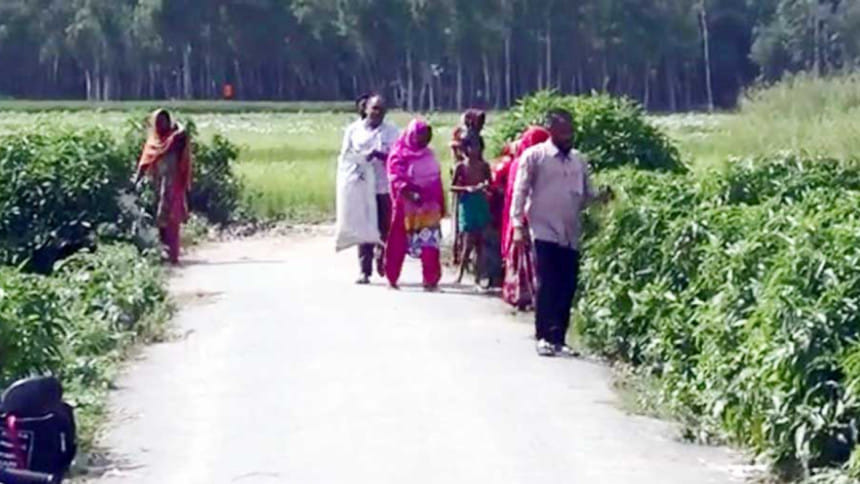Unused roadside land in Palashbari put to good use

Over a thousand people, mostly women, living in extreme poverty in Palashbari upazila have found a way to bring home some extra income without investing any money.
They have been making around Tk 2,200 to Tk 2,400 a month for the past several years by growing basak, a medicinal herb, along the roads in their villages.
Native to Asia, basak or justicia adhatoda, commonly known in English as Malabar nut, is a shrub that is widely used in Siddha Medicine, Ayurvedic, homeopathy and Unani systems of medicine for treating chronic bronchitis, asthma, dysentery and diarrhoea.
Thanks to the training provided by Department of Agricultural Extension (DAE) in Mohdipur union in the upazila three years ago, 21 women from Farkandapur village found a steady source of income from the sale of the leaves.
Divided in five groups, they planted basak saplings on both sides of a road in their village. They were able to start plucking the leaves after nurturing the plants for six months.
Zarina Khatun is one of them. She said, “Survival became difficult when my family was gripped by poverty after my husband was paralysed due to his illness. I couldn’t support my family of four.”
“To make a meagre living, I even worked as a maid. But three years ago, I found out about a training programme by the upazila agriculture office and took the training with others. Now I’m living a much better life than before.”
She also said she was quite pleased with growing basak plants as the growers do not need their own land to plant the saplings that do not cost any money and leaves from a plant can be harvested for years with some simple nurturing.
They dry the leaves after plucking and sell the dried leaves at collection points set up by different herbal medicine manufacturers, said Sultana Begum, another basak grower in the same village.
The manufacturers collect different herbs from remote villages through their agents and they pay Tk 37 to 42 for each kilogram of dried basak leaves, depending on its quality, she added.
Palashbari Upazila Agriculture Officer Azizul Islam said unused land along 190 kilometres of roads in all unions in the upazila have been leased out to around 1,300 poor people under 65 different groups and medicinal herbs are being grown alongside nearly 60 kilometres of the roads.
The DAE is trying to improve lives of landless destitute population through providing support in growing medicinal herbs, he added.

 For all latest news, follow The Daily Star's Google News channel.
For all latest news, follow The Daily Star's Google News channel. 



Comments